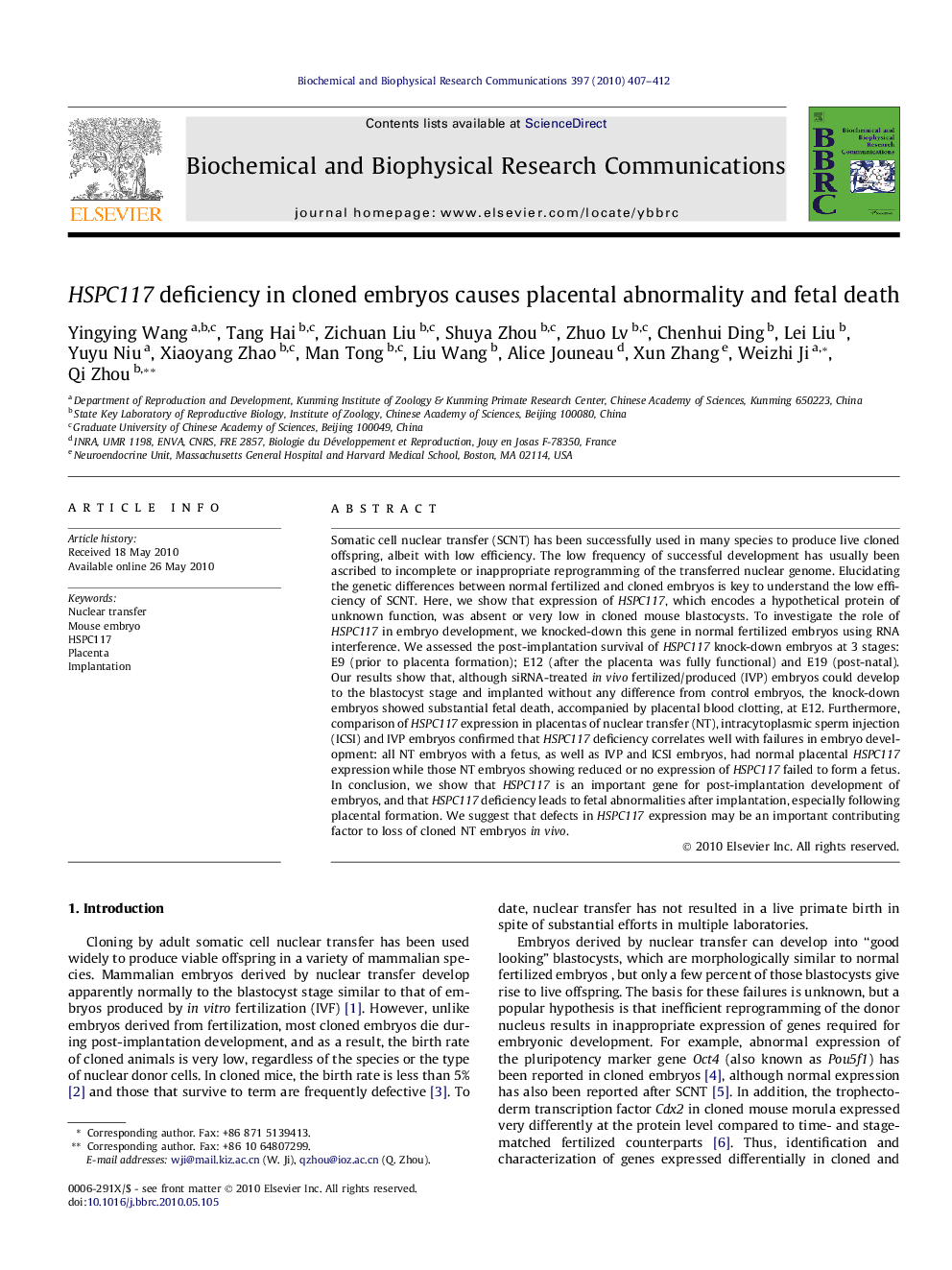| Article ID | Journal | Published Year | Pages | File Type |
|---|---|---|---|---|
| 1931883 | Biochemical and Biophysical Research Communications | 2010 | 6 Pages |
Somatic cell nuclear transfer (SCNT) has been successfully used in many species to produce live cloned offspring, albeit with low efficiency. The low frequency of successful development has usually been ascribed to incomplete or inappropriate reprogramming of the transferred nuclear genome. Elucidating the genetic differences between normal fertilized and cloned embryos is key to understand the low efficiency of SCNT. Here, we show that expression of HSPC117, which encodes a hypothetical protein of unknown function, was absent or very low in cloned mouse blastocysts. To investigate the role of HSPC117 in embryo development, we knocked-down this gene in normal fertilized embryos using RNA interference. We assessed the post-implantation survival of HSPC117 knock-down embryos at 3 stages: E9 (prior to placenta formation); E12 (after the placenta was fully functional) and E19 (post-natal). Our results show that, although siRNA-treated in vivo fertilized/produced (IVP) embryos could develop to the blastocyst stage and implanted without any difference from control embryos, the knock-down embryos showed substantial fetal death, accompanied by placental blood clotting, at E12. Furthermore, comparison of HSPC117 expression in placentas of nuclear transfer (NT), intracytoplasmic sperm injection (ICSI) and IVP embryos confirmed that HSPC117 deficiency correlates well with failures in embryo development: all NT embryos with a fetus, as well as IVP and ICSI embryos, had normal placental HSPC117 expression while those NT embryos showing reduced or no expression of HSPC117 failed to form a fetus. In conclusion, we show that HSPC117 is an important gene for post-implantation development of embryos, and that HSPC117 deficiency leads to fetal abnormalities after implantation, especially following placental formation. We suggest that defects in HSPC117 expression may be an important contributing factor to loss of cloned NT embryos in vivo.
